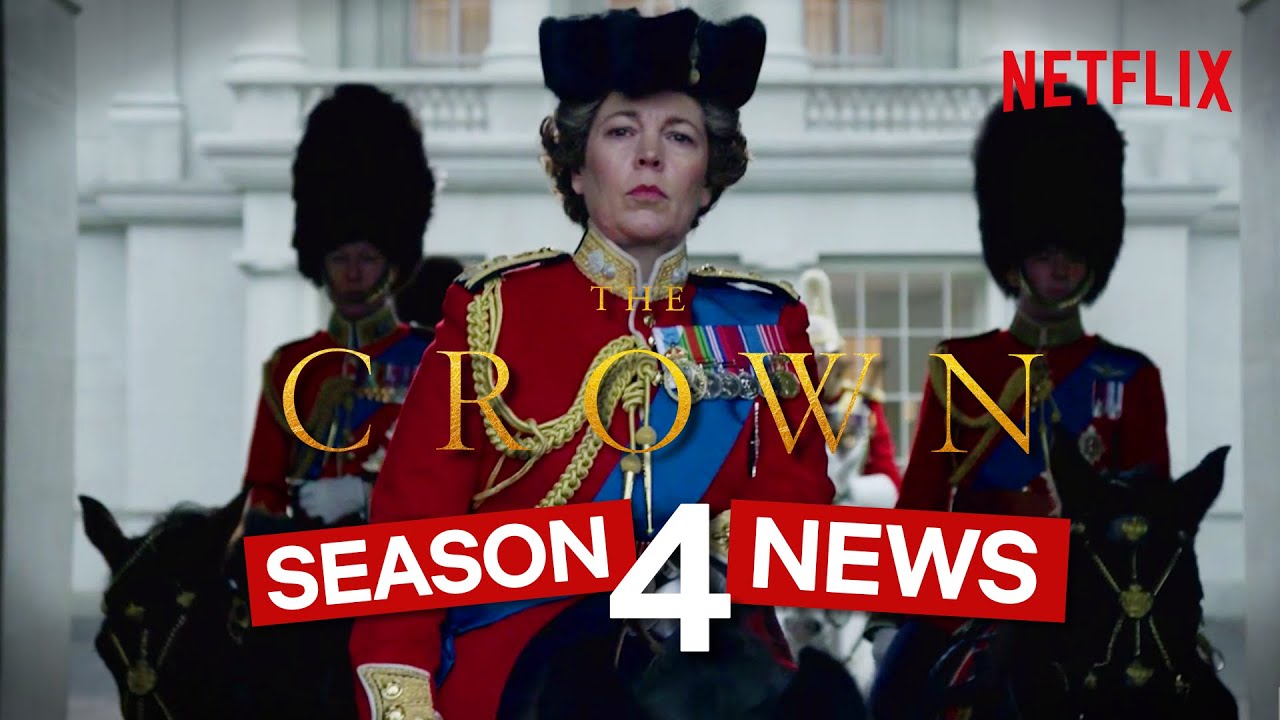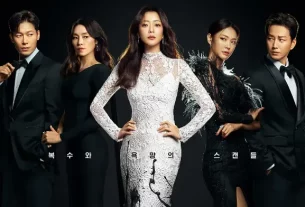Everyone in this system is a lost, lonely, irrelevant outsider, except for the only one who is important. She is the root of all of us, and with all due respect, your problem is that you don’t seem to figure out who that person is. “Prince Philip said to Princess Diana. At this time the waiter came over and asked them to go downstairs to take a photo. The warm Christmas music played, and everyone smiled. The camera was frozen on Princess Diana’s face: faintly tearful The eyes cannot hide the endless sadness. The fourth season of “The Crown” has ended.
The American drama “The Crown” created by Netflix tells the political struggles, love and hatred behind the reign of Queen Elizabeth II, and major historical events that changed the second half of the 20th century.
Since its launch in 2016, this well-produced feature-length court drama has not only maintained its high popularity, but has also swept major awards.
The Douban score has been maintained at 9.2 or more every season.
The latest fourth season tells the story from 1977 to 1990. For ordinary audiences, the story of this season is also the most familiar and interesting.
“Iron Lady” Margaret Thatcher came on stage and Princess Diana appeared on stage. However, it is undoubtedly a huge challenge to write new ideas about the familiar royal story, without being serious and rigid, and without making a lot of noise.
Fortunately, the crew not only spends a lot of money on production, but also has a large team of experts behind them, all of which are just right.
“The New York Times” praised it for “mixing serious history with shallow gossip, which is always fascinating.”
The audience can relive history, the Irish issue, Margaret Thatcher’s reforms, the Falkland Islands war, the apartheid system in South Africa, etc.
Related Post:The 10 best British and American dramas of 2020.
“The Crown” does not narrate these macro histories in a stereotyped manner, but cleverly uses vivid characters to show the full picture of society at that time.
Take the fifth episode, for example, “Fagan” based on the 1982 “Men’s Private Invasion of Buckingham Palace”. Fagan was a painter, but couldn’t get work; he divorced his wife and couldn’t see the children because of mental problems; he received unemployment benefits every two weeks and received no other help.
Fagan went to the government department, the city council and even members of Congress, but no one paid any attention, so he suddenly wanted to go to the Queen to speak.
“The Crown” used Fagan’s mouth to present the economic turmoil and social contradictions during Thatcher’s reign: Although the monetarist reform controlled inflation, it also caused a sharp rise in unemployment and increased wealth inequality.
“Thatcher ruined our country… the right to work, the right to be sick, the right to be old, and the right to be a human being. I am not mentally ill. I am just poor.” Fagan complained to the Queen.
“The Crown” also satisfies the curiosity of ordinary people to peek into the life of the royal family. Those gossip that used to be the title of the best has faded from the appearance of dog blood in the drama, showing the cause and effect with humanity and details.
The audience can’t help feeling that when personal destiny is involuntarily intertwined with national history and royal system, the aura of the “crown” cannot conceal the sad background.
An episode of “The Hereditary Principles” focuses on Princess Margaret. The princess accidentally learned that the cousin who had been declared dead was actually still alive, and that her family lived in a mental hospital.
She angrily rebuked the cold-blooded cruelty of the royal family, “As long as you don’t fit this perfect model, you will be kicked away, forgotten, and even killed.” Her mother’s words forced her to face a more cruel fact, “The hereditary system is already in danger, and if mental illness is added, the building will be overwhelmed.
We can only use this method to promote the purity of the royal lineage.” , Princess Margaret, who suffers from mental distress, is drunk and sinking at a party orgy, but more often she sits alone in a daze in front of the swimming pool and is extremely lonely.
More tragic is the story of Prince Charles and Princess Diana throughout the play. Regarding the world-renowned wedding of the century, the narration in the play is like this: “The fairy tale usually ends here, ending with a simple sentence: From then on, they have lived a happy life. Our belief is that marriage is not the end. The land is the starting point of a real adventure.”
The indescribable expressions of everyone on the wedding day indicate that this is a big adventure.
The prince has other loves, but in line with the principle of right-handedness, Diana who has passed the royal test is a must.
Two totally inappropriate people are suffering in the chains of marriage, but there is nowhere to tell.
Once you speak, you will be scolded, “You are a spoiled immature man who complains endlessly, marrying a spoiled immature woman, complaining endlessly.
Don’t be embarrassed there. , Keep your marriage, keep your superior position, don’t think about divorce.”
It is a pity that the proud son of heaven in the eyes of the world cannot meet even the most basic emotional needs.
But the Queen’s remarks when they summoned them clearly stated the reason: “Our marriage represents the integrity of the royal family.
If they are divided and cannot be trusted, then the constancy and stability of the monarchy will also be questioned. .”
The story of Charles and Diana is destined to be a tragedy. Because the monarchy is truly superior. Under the crown, there are outsiders.



